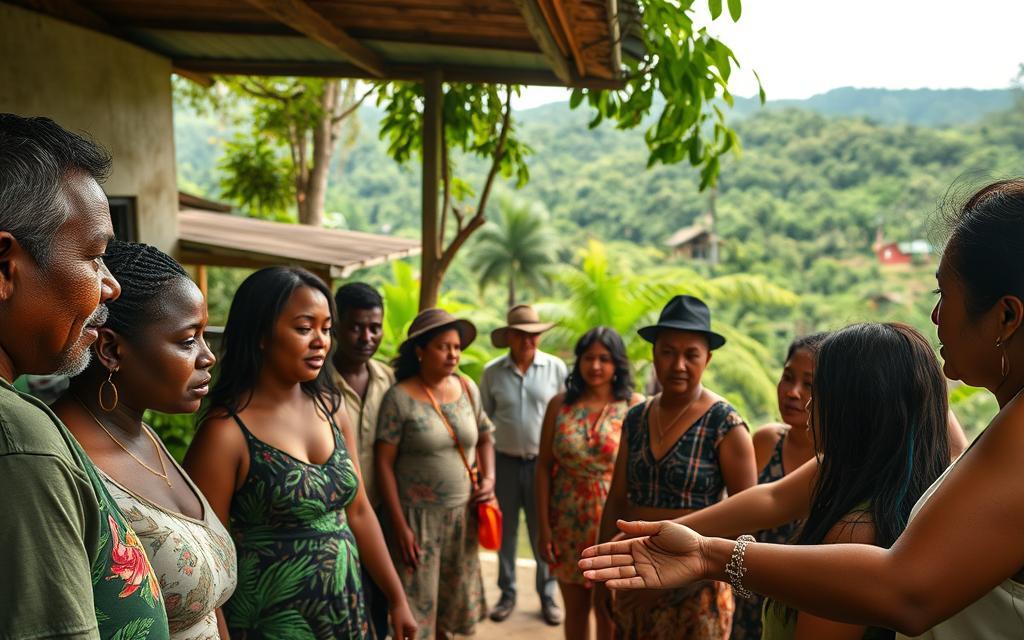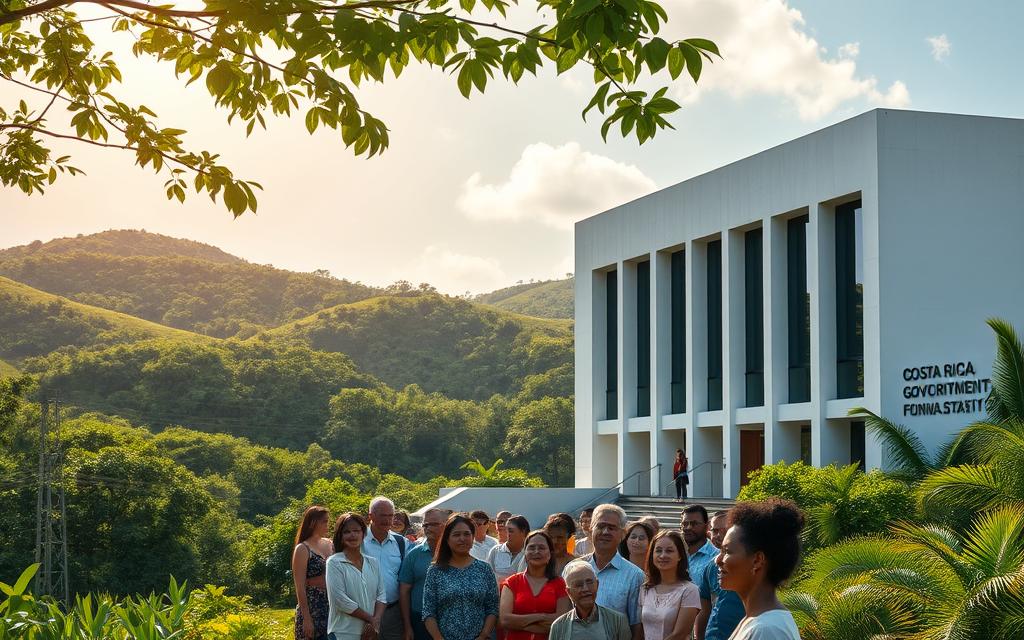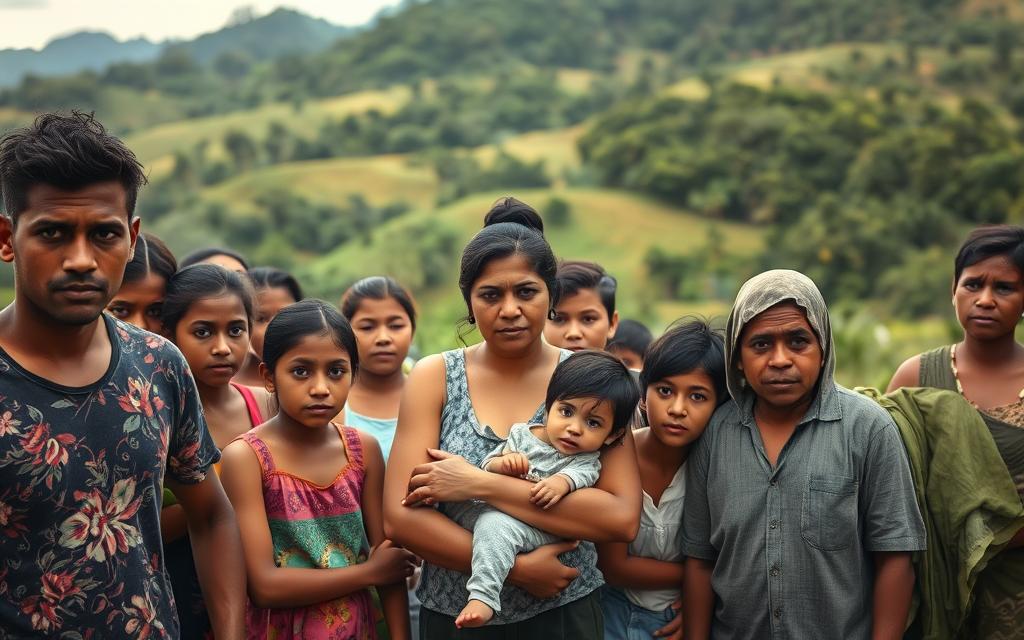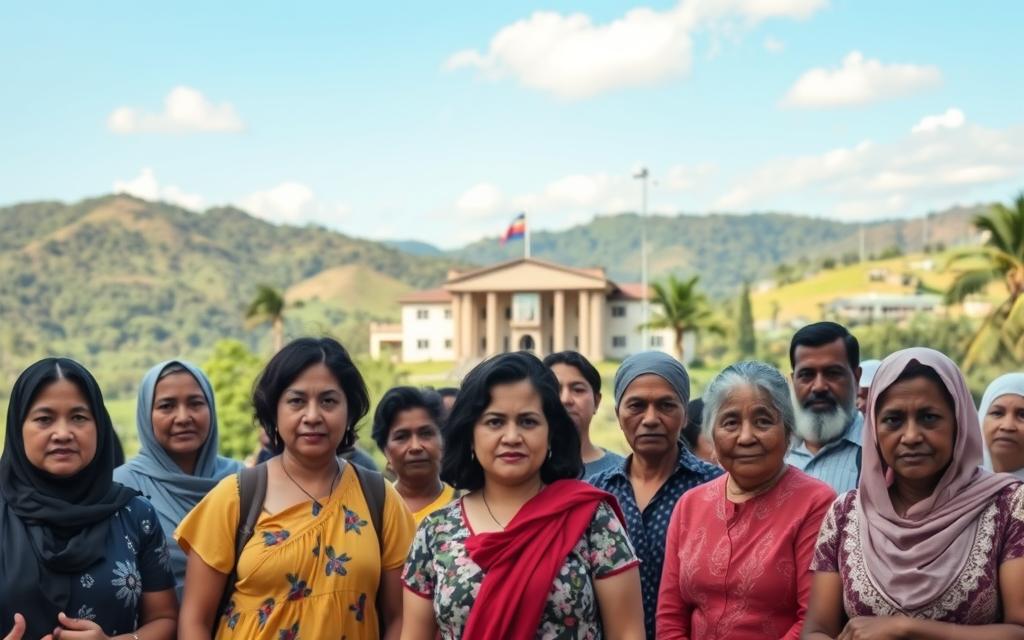Does Costa Rica Grant Asylum or Refugee Status?

Costa Rica has long been a beacon of hope for individuals seeking refuge in Central America. Its commitment to human rights and protection has shaped its immigration policies, making it an attractive destination for those seeking a better life.
As a country with a strong tradition of humanitarian protection, Costa Rica's asylum system is designed to provide stability and support to individuals fleeing instability. For those considering residency in Costa Rica, understanding the distinction between asylum and refugee status is crucial.
We will explore Costa Rica's role in the regional migration landscape, its historical commitment to protection, and the growing number of asylum applications. This article aims to provide comprehensive information about Costa Rica's asylum and refugee protection systems.
Costa Rica's Humanitarian Protection Framework

Costa Rica's humanitarian protection framework is rooted in its historical context and commitment to human rights. The country's approach to asylum and refugee protection has been shaped by its experiences and the evolving needs of those seeking protection.
Historical Context of Asylum in Costa Rica
Historically, Costa Rica has welcomed displaced persons from neighboring regions, a tradition dating back to the 1980s during Central America's civil conflicts. This legacy continues today, with a steady increase in asylum applications since 2018. The country's willingness to provide refuge is a testament to its commitment to humanitarian protection. For more information on the process of obtaining citizenship in Costa Rica, you can visit this resource.
Legal Foundation for Refugee Protection
The legal framework underpinning Costa Rica's refugee protection system is based on international conventions and domestic legislation. These laws define who qualifies for protection and outline the procedures for seeking asylum. Costa Rica's commitment to upholding these standards is evident in its continued adherence to international human rights instruments.
Costa Rica's Position in Regional Migration
Costa Rica's unique position in regional migration patterns makes it a significant destination for individuals fleeing political instability, particularly from Nicaragua and Venezuela. The country's humanitarian approach has evolved to address the changing dynamics of migration and the increasing numbers of asylum seekers. By working with international organizations like UNHCR, Costa Rica contextualizes its efforts within broader regional migration trends.
Does Costa Rica Offer Asylum or Refugee Status?

For those seeking safety, understanding Costa Rica's position on asylum and refugee status is essential. Costa Rica has a well-established framework for providing protection to individuals fleeing persecution.
Defining Asylum vs. Refugee Status in Costa Rica
Asylum and refugee status, though related, serve distinct purposes in the Costa Rican context. Asylum is granted to individuals who are persecuted for political or other related reasons, as defined by human rights conventions and international agreements. Refugee status, on the other hand, is typically granted to those fleeing armed conflict, natural disasters, or other life-threatening situations.
Understanding the difference between these two forms of protection is crucial for individuals seeking safety in Costa Rica.
Types of Protection Available
Costa Rica offers two primary types of asylum: diplomatic asylum and territorial asylum. Diplomatic asylum is granted within diplomatic missions, providing immediate protection to individuals in danger. Territorial asylum, the more common form, is granted within Costa Rican territory, offering a more permanent solution for those seeking refuge.
Recent Trends in Asylum Applications
Recent years have seen a significant surge in asylum applications in Costa Rica, particularly from Nicaraguans and Venezuelans fleeing political unrest and persecution. According to UNHCR data, Costa Rica has become one of the largest recipients of asylum applications per capita worldwide.
This trend underscores the importance of Costa Rica's role in regional migration and its commitment to providing protection to those in need.
Eligibility Requirements for Protection in Costa Rica

To qualify for protection in Costa Rica, applicants must meet specific eligibility requirements. Costa Rica's asylum and refugee protection framework is governed by international conventions and domestic law, ensuring that those in genuine need receive the necessary support.
Qualifying Criteria for Refugee Status
A person is considered a refugee if they have a well-founded fear of being persecuted for reasons of race, religion, nationality, gender, membership of a particular social group, or political opinion, and are outside their country of nationality or habitual residence. Costa Rican authorities evaluate this criterion carefully in asylum applications, considering the applicant's individual circumstances and the conditions in their home country. For more information on the application process, you can visit our page on Costa Rica's citizenship requirements.
Grounds for Asylum Protection
Asylum protection in Costa Rica is granted to individuals who face persecution or violence due to their political opinion, membership in a particular social group, or other reasons defined by human rights conventions. This includes LGBTQ+ individuals and victims of gender-based violence, who may be eligible for protection under specific circumstances.
Exclusion Criteria and Limitations
Not everyone who applies for asylum or refugee status is eligible. Individuals who have committed serious crimes, such as crimes against peace, war crimes, or crimes against humanity, are excluded from protection. Additionally, Costa Rica's protection system faces challenges, including processing delays and resource constraints, which can affect the experience of asylum seekers.
The Application Process for Asylum Seekers

Costa Rica's asylum application process is a multi-stage procedure that requires careful attention to detail. Asylum seekers looking for refuge in Costa Rica must follow a specific process to successfully apply for asylum.
Step-by-Step Application Procedure
The asylum application process in Costa Rica involves three main steps: traveling to Costa Rica, applying for asylum within 30 days of entry, and waiting for a resolution on the asylum claim. Asylum seekers must apply at ports of entry or before Costa Rica's Restricted Visas and Refugee Commission.
It's crucial to understand the 30-day deadline for filing asylum applications after entering Costa Rica, as missing this deadline can have significant consequences.
Required Documentation and Evidence
To support an asylum claim, applicants must provide required documentation and evidence, including personal identification, proof of persecution, and other supporting materials. The quality and relevance of the evidence submitted can significantly impact the outcome of the application.
For more information on obtaining residency in Costa Rica, which may be relevant for asylum seekers, visit https://www.jaroscr.com/how-to-get-residency-in-costa-rica/.
Processing Times and Expectations
The processing times for asylum applications in Costa Rica can be lengthy. While decisions should theoretically be made within 45 business days, actual wait times can extend to months or even years due to backlogs in the system.
Asylum seekers should be prepared for a potentially long wait and seek support from available resources and organizations to navigate the application process.
Rights and Benefits for Asylum Seekers and Refugees

Once an individual applies for asylum in Costa Rica, they gain access to several key rights and benefits. As we explore these entitlements, it's essential to understand the legal framework that supports asylum seekers and refugees.
Legal Status and Documentation
Asylum seekers in Costa Rica are provided with legal status and necessary documentation. This includes identification cards and temporary residence permits, which are crucial for accessing various services and exercising their rights.
Work Authorization and Employment Rights
Asylum seekers can obtain employment authorization documents three months after filing their applications. Recognized refugees have the right to engage in any gainful employment or self-employment activities in accordance with Costa Rican law. For more information on the next steps after obtaining residency, visit our guide on post-residency steps.
Access to Healthcare, Education, and Social Services
Asylum seekers and refugees have access to healthcare services, including emergency and routine medical care. They are also entitled to educational opportunities, ranging from primary to higher education. Additionally, vulnerable individuals can access social services and support programs offered by the government and international organizations.
These rights and benefits are fundamental to ensuring the well-being and integration of asylum seekers and refugees into Costa Rican society.
Conclusion: Navigating Your Path to Protection in Costa Rica
As we navigate the complexities of asylum and refugee protection in Costa Rica, it's clear that the country's commitment to humanitarian principles is unwavering. Costa Rica's legal framework ensures access to safety and stability for those in need, making it a significant destination for asylum seekers and refugees in Central America.
Costa Rica offers various residency options to suit different needs and circumstances. For instance, rentista residency, investment residency, and permanent residency are available for those who may not qualify for asylum or refugee status. These alternatives provide pathways to legal status, allowing individuals to live and work in Costa Rica.
For those considering seeking protection in Costa Rica, it's essential to understand the application process, required documentation, and processing times. We recommend reaching out to relevant government agencies and support organizations for guidance. Our team at Jaros CR is also available to provide professional assistance with immigration needs. You can contact us at www.jaroscr.com, info@jaroscr.com, or +(506)7182-8969.
In conclusion, while Costa Rica's asylum system faces challenges, the country's dedication to humanitarian principles remains strong. As migration flows continue to evolve, Costa Rica is likely to remain a critical destination for those seeking safety and stability in the region.


